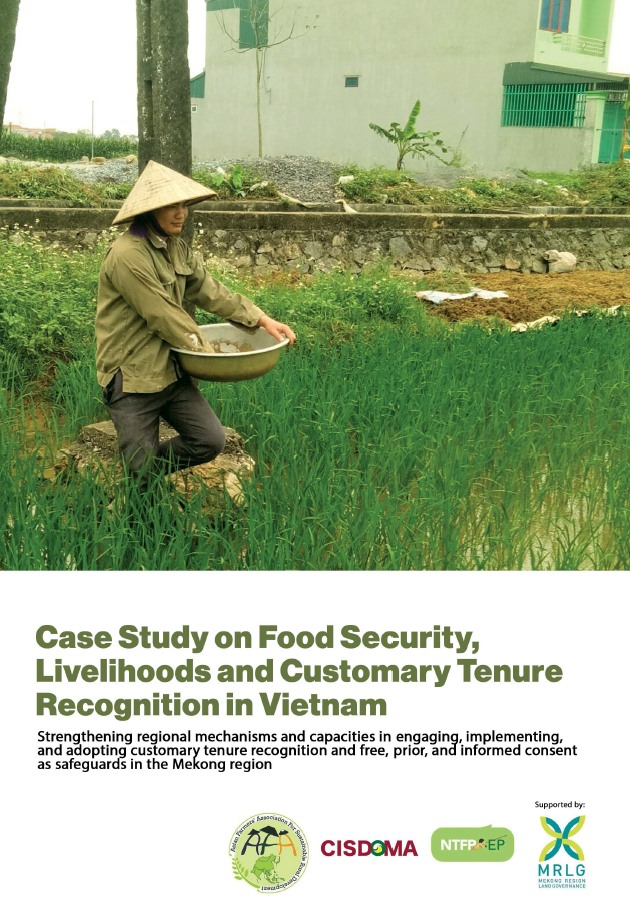Publications
Case Study on Food Security, Livelihoods and Customary Tenure Recognition in Vietnam
Over the past few years, there has been progress in tenure and safeguards at the ASEAN (regional) level, particularly in the Mekong sub-region. Customary tenure (CT) has been recognized as a key indicator in an important guideline for responsible investment in food agriculture and forestry. However, despite these developments, several challenges remain. For customary forest tenure, access and ownership are still conditional and restricted in several cases. Land conflicts remain high. Furthermore, encroachments in customary land and forests threaten customary rights and impede traditional livelihood and customary conservation and resource management practices.
In the Vietnam context, the term indigenous people and CT has not been recognized in legal documents. This put the EM communities with traditional use and management of land and forests at risk of being compromised during land transition processes, increasing over the last two decades.
This case study is part of the regional project, which investigates the status of CT recognition and implementation in the livelihoods and food security in ASEAN, particularly in Mekong countries. It is envisioned to generate information and learning that can serve as input in the development of ASEAN guidelines and policy on CT recognition to support the region’s commitment to delivering on livelihoods and food security goals.




